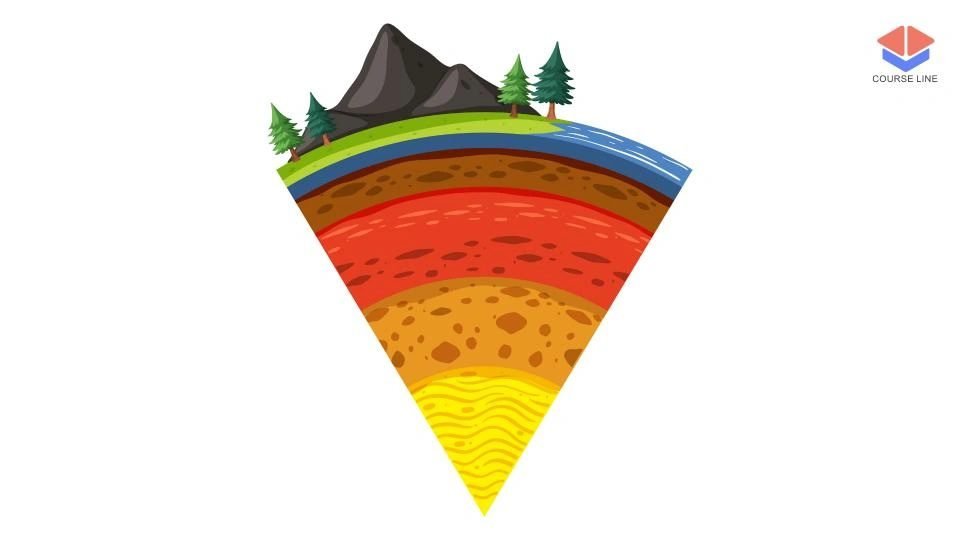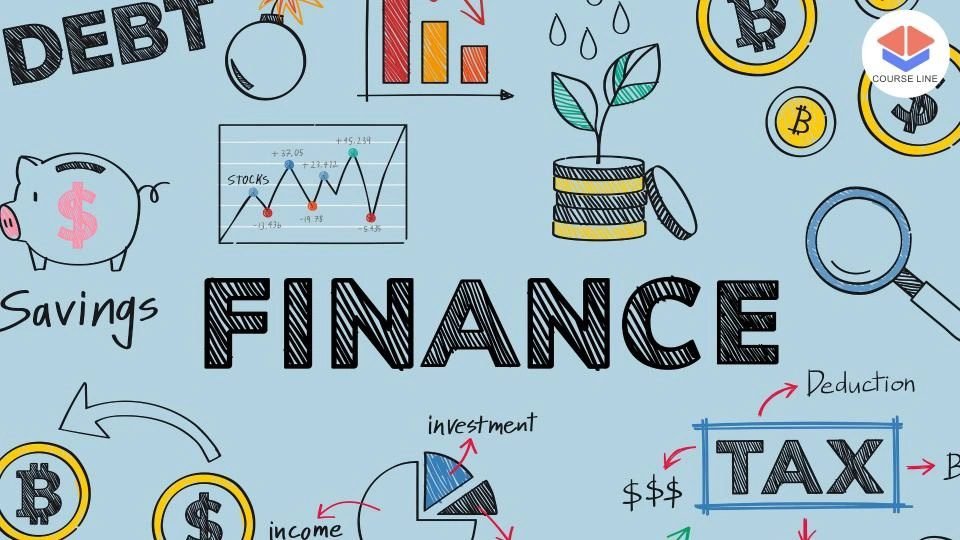Course Features
Price
Study Method
Online | Self-paced
Course Format
Reading Material - PDF, article
Duration
7 hours, 35 minutes
Qualification
No formal qualification
Certificate
At completion
Additional info
Coming soon
- Share
Overview
The Geology Level 8 Advanced Diploma explores the fascinating structure and dynamic systems of our planet. It begins with the foundational principles of geology, including the Earth's internal structure, geological time, and the history of geological sciences. Learners will delve into the classification and identification of minerals, the rock cycle, and the processes that shape the Earth's surface such as erosion, weathering, and sedimentation. Through a structured exploration of plate tectonics, seismic activity, and volcanic formations, students will understand the movements that continuously reshape the Earth.
The course advances into practical aspects of geology with modules on geological mapping, field techniques, remote sensing, and GIS applications. Stratigraphy and paleontology are covered in detail, offering insights into fossil records and how they help interpret Earth’s geological history. Structural geology provides essential knowledge of folds, faults, and fractures, enabling learners to interpret complex geological environments.
Environmental and economic geology modules examine the extraction and sustainable use of natural resources, including fossil fuels and minerals. Hydrogeology and geochemistry introduce learners to groundwater dynamics, pollution control, and the chemical processes influencing Earth’s composition. Finally, the course concludes with applied geology, covering geohazards, site investigations, climate change records, and career opportunities, preparing learners for advanced roles in research, academia, and industry.
Who is this course for?
The Geology Level 8 Advanced Diploma explores the fascinating structure and dynamic systems of our planet. It begins with the foundational principles of geology, including the Earth's internal structure, geological time, and the history of geological sciences. Learners will delve into the classification and identification of minerals, the rock cycle, and the processes that shape the Earth's surface such as erosion, weathering, and sedimentation. Through a structured exploration of plate tectonics, seismic activity, and volcanic formations, students will understand the movements that continuously reshape the Earth.
The course advances into practical aspects of geology with modules on geological mapping, field techniques, remote sensing, and GIS applications. Stratigraphy and paleontology are covered in detail, offering insights into fossil records and how they help interpret Earth’s geological history. Structural geology provides essential knowledge of folds, faults, and fractures, enabling learners to interpret complex geological environments.
Environmental and economic geology modules examine the extraction and sustainable use of natural resources, including fossil fuels and minerals. Hydrogeology and geochemistry introduce learners to groundwater dynamics, pollution control, and the chemical processes influencing Earth’s composition. Finally, the course concludes with applied geology, covering geohazards, site investigations, climate change records, and career opportunities, preparing learners for advanced roles in research, academia, and industry.
Requirements
The Geology Level 8 Advanced Diploma explores the fascinating structure and dynamic systems of our planet. It begins with the foundational principles of geology, including the Earth's internal structure, geological time, and the history of geological sciences. Learners will delve into the classification and identification of minerals, the rock cycle, and the processes that shape the Earth's surface such as erosion, weathering, and sedimentation. Through a structured exploration of plate tectonics, seismic activity, and volcanic formations, students will understand the movements that continuously reshape the Earth.
The course advances into practical aspects of geology with modules on geological mapping, field techniques, remote sensing, and GIS applications. Stratigraphy and paleontology are covered in detail, offering insights into fossil records and how they help interpret Earth’s geological history. Structural geology provides essential knowledge of folds, faults, and fractures, enabling learners to interpret complex geological environments.
Environmental and economic geology modules examine the extraction and sustainable use of natural resources, including fossil fuels and minerals. Hydrogeology and geochemistry introduce learners to groundwater dynamics, pollution control, and the chemical processes influencing Earth’s composition. Finally, the course concludes with applied geology, covering geohazards, site investigations, climate change records, and career opportunities, preparing learners for advanced roles in research, academia, and industry.
Career path
The Geology Level 8 Advanced Diploma explores the fascinating structure and dynamic systems of our planet. It begins with the foundational principles of geology, including the Earth's internal structure, geological time, and the history of geological sciences. Learners will delve into the classification and identification of minerals, the rock cycle, and the processes that shape the Earth's surface such as erosion, weathering, and sedimentation. Through a structured exploration of plate tectonics, seismic activity, and volcanic formations, students will understand the movements that continuously reshape the Earth.
The course advances into practical aspects of geology with modules on geological mapping, field techniques, remote sensing, and GIS applications. Stratigraphy and paleontology are covered in detail, offering insights into fossil records and how they help interpret Earth’s geological history. Structural geology provides essential knowledge of folds, faults, and fractures, enabling learners to interpret complex geological environments.
Environmental and economic geology modules examine the extraction and sustainable use of natural resources, including fossil fuels and minerals. Hydrogeology and geochemistry introduce learners to groundwater dynamics, pollution control, and the chemical processes influencing Earth’s composition. Finally, the course concludes with applied geology, covering geohazards, site investigations, climate change records, and career opportunities, preparing learners for advanced roles in research, academia, and industry.
-
- Introduction to Geology: Scope and Importance 00:10:00
- History of Geological Sciences 00:10:00
- Earth’s Structure and Composition 00:10:00
- Geological Time Scale and Dating Methods 00:10:00
-
- Physical and Chemical Properties of Minerals 00:10:00
- Mineral Classification and Identification Techniques 00:10:00
- Igneous, Sedimentary, and Metamorphic Rocks 00:10:00
- Rock Cycle and Geological Processes 00:10:00
- Theory of Plate Tectonics 00:10:00
- Earthquakes and Seismic Activity 00:10:00
- Volcanoes: Types, Formation, and Hazards 00:10:00
- Mountain Building and Continental Drift 00:10:00
- Topographic and Geological Maps 00:10:00
- Stratigraphic Principles and Cross-Sections 00:10:00
- Fieldwork Methodology and Tools 00:10:00
- Remote Sensing and GIS in Geology 00:10:00
- Stress, Strain, and Rock Deformation 00:10:00
- Folds, Faults, and Fractures 00:10:00
- Geological Structures and Their Mapping 00:10:00
- Structural Interpretation in Tectonic Environments 00:10:00
- Groundwater Flow and Aquifers 00:10:00
- Water Quality and Pollution 00:10:00
- Geochemical Cycles and Element Distribution 00:00:00
- Isotope Geochemistry and Its Applications 00:10:00
- Geology Level 8 Advanced Diploma 00:50:00

No Reviews found for this course.
Is this certificate recognized?
Yes, our premium certificate and transcript are widely recognized and accepted by embassies worldwide, particularly by the UK embassy. This adds credibility to your qualification and enhances its value for professional and academic purposes.
I am a beginner. Is this course suitable for me?
Yes, this course is designed for learners of all levels, including beginners. The content is structured to provide step-by-step guidance, ensuring that even those with no prior experience can follow along and gain valuable knowledge.
I am a professional. Is this course suitable for me?
Yes, professionals will also benefit from this course. It covers advanced concepts, practical applications, and industry insights that can help enhance existing skills and knowledge. Whether you are looking to refine your expertise or expand your qualifications, this course provides valuable learning.
Does this course have an expiry date?
No, you have lifetime access to the course. Once enrolled, you can revisit the materials at any time as long as the course remains available. Additionally, we regularly update our content to ensure it stays relevant and up to date.
How do I claim my free certificate?
I trust you’re in good health. Your free certificate can be located in the Achievement section. The option to purchase a CPD certificate is available but entirely optional, and you may choose to skip it. Please be aware that it’s crucial to click the “Complete” button to ensure the certificate is generated, as this process is entirely automated.
Does this course have assessments and assignments?
Yes, the course includes both assessments and assignments. Your final marks will be determined by a combination of 20% from assignments and 80% from assessments. These evaluations are designed to test your understanding and ensure you have grasped the key concepts effectively.
Is this course accredited?
We are a recognized course provider with CPD, UKRLP, and AOHT membership. The logos of these accreditation bodies will be featured on your premium certificate and transcript, ensuring credibility and professional recognition.
Will I receive a certificate upon completion?
Yes, you will receive a free digital certificate automatically once you complete the course. If you would like a premium CPD-accredited certificate, either in digital or physical format, you can upgrade for a small fee.
Course Features
Price
Study Method
Online | Self-paced
Course Format
Reading Material - PDF, article
Duration
7 hours, 35 minutes
Qualification
No formal qualification
Certificate
At completion
Additional info
Coming soon
- Share
Educational Psychology Level 8 Advanced Diploma
Course Line238¥4,655.90Original price was: ¥4,655.90.¥142.43Current price is: ¥142.43.Financial Management
Course Line244¥4,655.90Original price was: ¥4,655.90.¥142.43Current price is: ¥142.43.Dog Nutrition Level 5 Advanced Diploma
Course Line242¥4,655.90Original price was: ¥4,655.90.¥142.43Current price is: ¥142.43.





